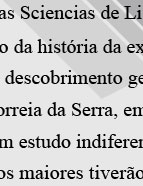

................................
Published in the same year, the manual of François de Callières, an experienced diplomat nearing the end of his "career," bore an enlightening title: De la maniere de negotier avec les Souverains. The agent of foreign policy was a negotiateur, and diplomacy was the art of negotiation which found its lingua franca in French, replacing the Latin. A few decades later, the Diccionario da Lingua Portugueza [Portuguese Language Dictionary] (Morais da Silva, 1789) distinguished the "negotiator" (one who deals with political negotiation) from the "negotiant" (the merchant, the businessman) and defined the words "diploma" as "dispatch, letter, patent, bull, edict, mandate, which bears the sovereign's seal of arms" and "diplomatic," distinguishing the adjective in its application to "diploma" from its reference to the "diplomatic corps," where it means "the foreign ministers residing as ambassadors, envoys, plenipotentiaries, etc." It is therefore clear that the notion of a professional group with the specific functions of conducting negotiations between States, aimed at reconciling conflicts without resorting to force already existed. This instrument of the sovereign's foreign policy called for the organisation of a specific and complex branch of administration, which only stood out from other state matters in Portugal with the reform of the Secretariats conducted by King João V (1736) and the establishment of a series of privileges for diplomatic agents.
It was towards the end of the 18th century that the term "diplomacy" became widespread, most likely popularised through the letters of Edmund Burke regarding the French Revolution (Letters on a Regicide Peace, 1796). He opposed the peace attempts with the Directory, led by William Pitt, using the term "double diplomacy". In 1797, the word was definitively entered into the French Academy dictionary to denote the "science of foreign relations," which is based on diplomas or "written acts" issued by sovereigns, clearly distinguishing it from Diplomatics, whose focus is limited to determining the authenticity of documents. Indeed, by the early 19th century, the term Diplomacy clearly appears in the title of the work Histoire Générale et Raisonnée de la Diplomatie Française, published between 1808-1811. For its author—Gaëtan de Raxi de Flassan (1760-1845), the chief of staff to Talleyrand at the time and appointed historiographer of the Ministry of Foreign Affairs by Louis XVIII after the Congress of Vienna (1815)—"Diplomacy is the expression that has, for some years, designated the science of foreign relations, based on diplomas or written acts issued by sovereigns," with the advantage of precisely defining its instrumental character and its intermediary role in the relations of the decision centre with other states. According to the author, its strength came from containing everything capable of ensuring peace and provoking war, and its origins, abstracting from forms, dated back to the first gathering of men into a national body, since they had properties to defend, neighbours to fear, friends to protect, and satisfactions to demand.
